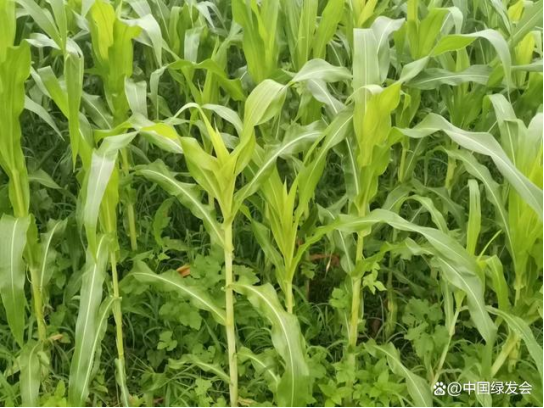On the morning of July 14, the Chinese Embassy in Sri Lanka and the Sri Lankan Ministry of Education jointly held the handover ceremony of the second batch of food (1,000 tons of rice) for China's emergency humanitarian assistance to Sri Lanka. Qi Zhenhong said that the friendship between China and Sri Lanka has a long history and has been supporting each other for a long time. We empathize with the difficulties and challenges Sri Lanka is currently facing, and are providing emergency livelihood assistance to our brothers and sisters in Sri Lanka through various channels. Children are the future of the country, the hope of the nation, and the object of our attention under difficult circumstances. It is hoped that the rice aided in Sri Lanka will provide some support for the children's food security through the student meal plan, and help the Sri Lankan people to tide over the difficulties as soon as possible.
Here is the commentary article by professor Jiang Gaoming.
JIANG Gaoming: Organic Agriculture Failed in Sri Lanka, Succeeded in Cuba, which has been seized to make distortion on some pretext by someone
Jiang Gaoming
Prof. Jiang Gaoming (Former Deputy Secretary-General of China Biodiversity Conservation and Green Development Foundation, Researcher of Institute of Botany, Chinese Academy of Sciences, Founder of Hongyi Eco- Site).
Recently, Sri Lanka, an island country in the Indian Ocean, has fallen into multiple crises economically, socially and politically, and has become the focus of the international community. Sri Lanka, once with its advantageous geographical location, rich natural resources and beautiful marine scenery, was known as the "Bright Pearl in the Indian Ocean". However, multiple internal and external factors have superimposed and resonated, causing Sri Lanka to fall into many crises which makes it difficult for the country to rescue itself. At present, various political parties in Sri Lanka are preparing to form a new government. It is worth observing how they would respond to the current crisis, but the overall outlook is not optimistic.
As for the reason for the coup in Sri Lanka, some people attribute it to the failure in the developing organic agriculture in the country. There was a period of time when the Sri Lankan government fully implemented organic agriculture and introduced measures to ban the import of chemical fertilizers, pesticides and herbicides, resulting in a significant drop in agricultural production. Since then, although the government has lifted the ban on the import of chemical fertilizers, it has also cancelled the relevant import subsidies, resulting in skyrocketing fertilizer prices and continuous food shortages, forcing the government to spend more foreign exchange to import food.

It is a systematic project to develop eco-agriculture or organic farming, which cannot be solved only by issuing one or two documents or bans. This involves the interests of all sides. The government must carry out pilot projects and have forerunner to try, and then promote it after success. There is no mistake about the general direction of organic farming. In theory, the food provided by organic agriculture will not be less than that of conventional petrochemical agriculture; in practice, ecological agriculture will not starve people, on the contrary, it can also protect the ecological environment and greatly reduce the number of hospital patients, and promote the employment of farmers and college students. However, Sri Lanka's hasty development of organic agriculture has failed due to political and economic reasons.
However, the success of Cuba, which also vigorously promotes organic agriculture, is rarely mentioned.
In the late 1980s, hit by the "disintegration of the Soviet Union and the Great Change in Eastern Europe", Cuba, an island country in the northern Caribbean Sea, did not experience national turmoil due to the shortage of petrochemicals. Surprisingly. Cuba’s agriculture did not collapse as completely as North Korea did. On the contrary, It adjusted its policies in time after experiencing the “first round” of blows, and finally saved the day and successfully realized the transition from modern oil agriculture to green ecological agriculture. On the contrary, North Korea, which has developed petrochemical agriculture, was hit hard at that time, but now North Korea has also survived, and there is no social unrest like Sri Lanka. It can be seen that institutional guarantees are very critical.
In response to the agricultural and petrochemical crisis caused by the disintegration of the Soviet Union, the Cubans have a very clear idea, that is, to resolutely abandon "oil agriculture", widely mobilize the people, and quickly restore traditional ecological agriculture.
The development of eco-agriculture in Cuba, "supported by farmers, multiple institutions, universities and research centers, has succeeded in finding alternatives to the shortage of fuels, fertilizers and pesticides, as draught-drawn alternatives to tractors and fuel use; crop rotation, various Diversification of rich crops such as intercropping; green manure, composting, worm farming, leguminous crop cultivation, bio-fertilizers such as mycorrhizae, rhizobia and biomass to rapidly increase soil fertility; seed protection and biological control to replace chemical pesticides”; "Although farmers reduced the use of chemical pesticides between 1988 and 2007, crop yields increased."
In the past 30 years, on the basis of "(a series of) important achievements in organic fertilizers, soil conservation, crop and livestock management, etc.", Cuba has achieved a smooth transformation of ecological agriculture, thus reversing the passive situation of food shortages.
Cuba's experience has proved that biological pest control is beneficial to the restoration of the biodiversity function of agro-ecosystems, and the population of harmful species can also be controlled and regulated. Currently, Cuba "has more than 200 biological pest control centers established in different regions and at the provincial and municipal levels, and the semi-industrial or manual production of biological control and pest prevention materials is considered a veritable grassroots pest control revolution".
It is a pity that today's capital-controlled media groups do not mention Cuba's success. Instead, they hype Sri Lanka's development of organic agriculture, leading to social unrest and bankruptcy of the country, thereby shaking our confidence in building an ecological civilization and achieving sustainable economic development. We have to guard against such remarks.

Write by Jiang Gaoming (Professor)
Date: July 15, 2022
Original Chinese Article:
Translator: Lucy
Editor: Daisy
Contact: v10@cbcgdf.org; +8617319454776

Contribution
Do you know? CBCGDF is a non-profit organization. We rely on crowd-funding and donations. You have the opportunity to help us to advance biodiversity conservation. Donate TODAY to power up the movement to make it a better world for all life.
https://www.paypal.me/CBCGDFChina
http://www.cbcgdf.org/English/ConfirmDonaTion/0.html
